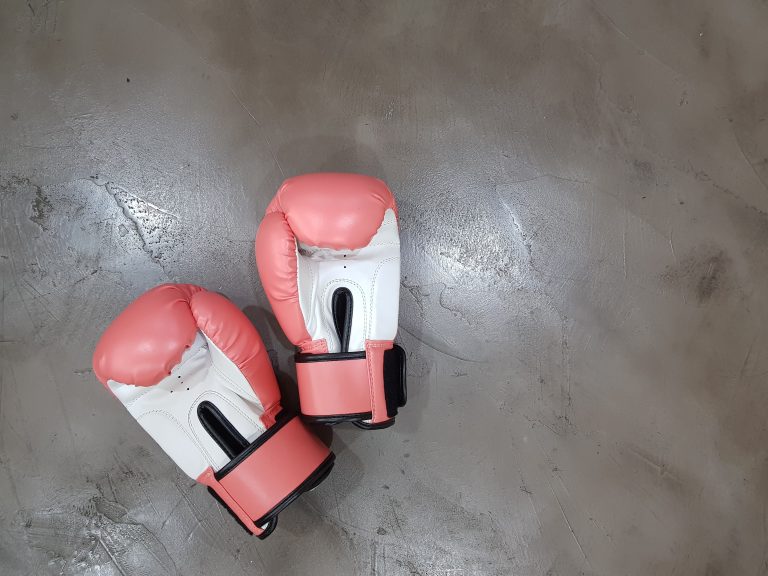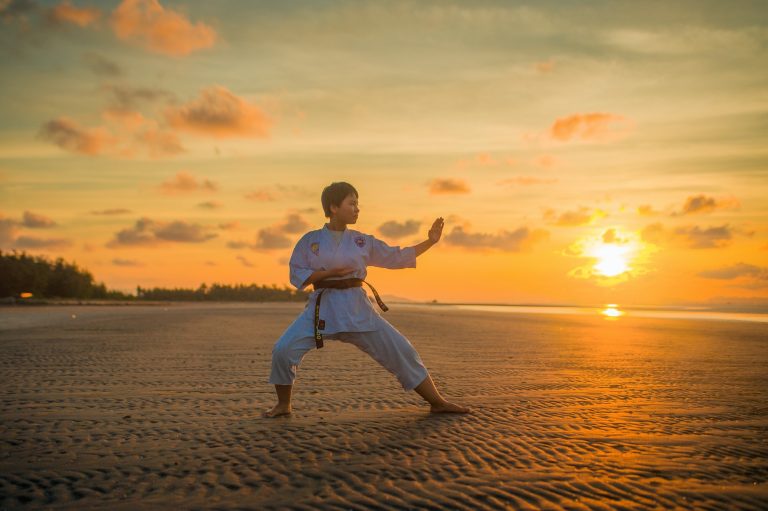Is Karate Useful?
Karate is a traditional Japanese martial art that has become popular around the world. It is a complete self-defense system that focuses on striking techniques, and it’s practiced by millions of people worldwide. However, some people doubt the effectiveness of karate as a form of self-defense. In this article, we will explore whether or not karate is useful in real-life situations.
What is Karate?
Karate is a martial art that focuses on striking techniques, such as punches, kicks, elbows, and knees. It was developed on the island of Okinawa, Japan, in the 19th century, and it has since evolved into different styles and variations. Karate is not just a physical discipline; it also emphasizes self-discipline, respect, and mental focus. Karate classes typically include training on stances, strikes, blocks, kicks, and kata.
Is Karate Useful for Self-Defense?
Karate is often marketed as a self-defense system, and many people choose to learn it for that specific purpose. The question is, can karate techniques be applied in real-life situations? The answer is yes, but with some caveats.
First, the effectiveness of karate techniques in a self-defense situation depends on the person. Like any martial art, karate requires consistent practice and training to learn the techniques and develop speed, power, and accuracy. Without proper training, the techniques may not be effective in real-life scenarios.
Additionally, self-defense situations can be unpredictable, and there is no guarantee that a particular technique learned in karate will be the best solution. It is important to note that the most important aspect of self-defense is awareness and avoiding dangerous situations.
Another factor to consider is that sport karate, which is usually practiced in competitions, is different from self-defense karate. Sport karate focuses on scoring points against an opponent and may not be as effective in real-life situations.
The Benefits of Karate Training
While the effectiveness of karate techniques in self-defense scenarios may be debated, there are many benefits to training in karate that go beyond just physical fighting skills.
First, karate emphasizes self-discipline and mental focus, which can be applied to various aspects of life, such as work, school, or relationships. Karate training can also improve physical fitness, flexibility, coordination, and balance.
Additionally, karate is often practiced in a group setting, which can provide a sense of community and support. Many people find karate to be a stress-relieving activity that can promote mental clarity and a sense of well-being.
Is Karate Useful?
Karate is a popular Japanese martial art that is widely practiced around the world. It is known for its intense physical training, mental discipline, and self-defense techniques. However, many people are still not sure if it is actually useful in real-life situations. In this blog post, we will address the most frequently asked questions about the usefulness of karate and provide evidence-based answers.
1. Can Karate Help In Self-Defense?
One of the main reasons why people learn karate is to protect themselves in real-life situations. So, is karate truly effective for self-defense? The answer is yes, but with some caveats. Karate teaches a wide range of techniques such as punches, kicks, strikes, and blocks that can help in defending oneself against an attacker. The training also involves sparring and practicing techniques against other practitioners, which simulates real-life situations. However, it is important to note that self-defense situations can be unpredictable and violent, and therefore, the effectiveness of karate techniques may depend on various factors such as the skill level of the practitioner, the size and strength of the attacker, the location of the attack, and others. In addition, self-defense situations should always be avoided if possible, and karate training emphasizes prevention and situational awareness as important aspects of self-defense.
2. Does Karate Improve Physical Fitness?
Another reason why people practice karate is to improve their physical fitness. Karate training is known for its intense physical workout that involves cardiovascular exercise, strength training, and flexibility drills. It can help in developing muscular endurance, coordination, reflexes, and balance. Regular karate training can also burn calories and reduce body fat, leading to weight loss and improved body composition. Moreover, karate training can help in reducing stress, improving mood, and boosting self-confidence.
3. Can Karate Help In Mental Discipline?
Karate is not just about physical training, but also about mental discipline. It teaches practitioners how to focus their minds, control their emotions, and develop self-discipline. Karate training involves meditation and breathing exercises that can help in reducing anxiety and improving mental clarity. It can also help in developing a positive attitude and a sense of self-control that can be applied in various aspects of life.
4. Is Karate Suitable For Children?
Karate can be suitable for children if taught by qualified instructors in a safe and positive environment. Karate training can help children in developing physical fitness, confidence, discipline, and respect for others. It can also teach important life skills such as goal-setting, perseverance, and teamwork. However, parents should ensure that the karate school and instructors follow safety guidelines, provide age-appropriate training, and prioritize the well-being of children over winning competitions.
5. Can Karate Be Used As a Competitive Sport?
Karate can be a competitive sport, with many national and international tournaments held every year. Competitive karate involves sparring and forms (kata) competitions, where practitioners perform predetermined sequences of techniques. Competitions can provide a platform for practitioners to showcase their skills, challenge themselves, and learn from others. However, competitive karate has some limitations, as it focuses on a set of rules and techniques that may not be applicable in real-life situations. Moreover, the emphasis on winning and scoring points may overshadow the martial arts‘ original objectives of self-improvement, self-defense, and mental discipline.
How to Determine the Usefulness of Karate
Karate is often considered as one of the traditional martial arts that has gained an enormous amount of popularity all over the world. However, there is always a dilemma about whether or not karate is useful or not. To make things clear, there are different types of karate, and it depends on how you define usefulness, but in general, it is safe to say that karate has several benefits. In this post, we’ll go through how to determine if karate is useful for you.
Step 1: Know the Benefits of Karate
Before determining the usefulness of karate, it is essential to know the benefits of karate. Here are some of the primary benefits of karate:
Self-defense:
Karate is often considered one of the most effective forms of self-defense. Karate teaches you techniques, such as blocking, striking, and grappling, which helps you protect yourself in real-life situations.
Physical Fitness:
Karate improves your physical fitness by catering to different aspects of your body, such as strength, flexibility, balance, and coordination.
Mental Health:
Karate teaches you discipline, control, and focus. It helps reduce stress, anxiety, and depression, increasing confidence.
Step 2: Know Yourself
Knowing yourself is essential to determine the usefulness of karate. Karate is not for everyone. Knowing your strengths and weaknesses can help you evaluate whether or not karate is useful for you. Here are some of the questions to ask yourself to help you determine if karate will be useful for you:
What is your motivation?
Karate requires discipline, commitment, and hard work. You need to have a strong motivation to achieve your goals in karate.
What are your physical abilities?
Karate requires a certain amount of physical abilities such as strength, flexibility, balance, and coordination. Knowing your physical abilities can help you determine if you are capable of learning and practicing karate.
What are your limitations?
Karate involves high-impact activities such as kicking, punching, and blocking. Knowing your limitations can help you determine if karate is safe for you to practice.
Step 3: Find a Karate School
The next step is to find a karate school. The wrong school can be counterproductive and can cause injury. Here are some of the factors to consider when choosing a karate school:
Visit the School:
Visit the karate school and observe the classes. Observe the instructor’s teaching method, and the students‘ behavior.
Credentials and Experience:
Look for a karate school with certified instructors who have extensive experience in teaching karate.
Examining the Curriculum:
Look for a karate school that offers a well-structured curriculum that covers all aspects of karate.
Step 4: Practice Consistently
The final step is to practice karate regularly. Consistency is key to improving your skills and gaining the benefits of karate. Here are some tips for practicing karate consistently:
Set Goals:
Set realistic goals, such as learning specific techniques, improving your physical fitness or mastering different Kata.
Practice Regularly:
Practice karate regularly, as practicing increases your skills and strengthens your body.
Become Part of the Community:
Joining events and tournaments in your community can help you stay motivated and help you gain valuable experience.
Conclusion
Karate has several benefits that can enhance your physical health, mental health, and self-defense skills. When determining the usefulness of karate, it is essential to know the benefits, know yourself, find a karate school, and practice consistently. By following these steps, you can determine if karate is useful for you and can gain the full benefits karate has to offer.
Inhaltsverzeichnis






